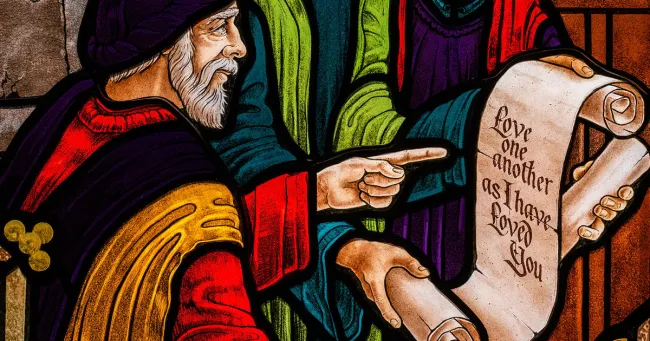Is Being Racist a Sin? A Biblical and Theological Exploration
Racism—prejudice based on race or ethnicity—has long been a harmful force in societies worldwide. For Christians, the question of whether racism is a sin goes beyond political or cultural concerns; it is deeply rooted in Scripture, theology, and the example set by Christ. This exploration will outline why racism contradicts God's design and how the Church is called to confront it.
1. Biblical Foundations: Human Dignity and Unity in Christ
The Bible provides a clear foundation for understanding the sin of racism. Key biblical truths affirm that:
- Human Dignity: All people are created in God's image (Genesis 1:27), granting inherent dignity to every individual, regardless of race.
- Unity in Christ: In Christ, distinctions such as race, gender, or social status no longer matter. The Apostle Paul declares in Galatians 3:28: “There is neither Jew nor Gentile, slave nor free, nor is there male and female, for you are all one in Christ Jesus.”
Racism, by contrast, violates the command to love our neighbors as ourselves (Matthew 22:39). It dehumanizes others and perpetuates divisions that Scripture calls to be erased. Furthermore, in Acts 2:5-11, the event of Pentecost demonstrates God’s vision for unity, reversing the curse of Babel (Genesis 11:7-9).
2. Jesus’ Radical Example: Breaking Down Barriers
Jesus consistently challenged racial and ethnic prejudices through his actions:
- Conversations with Outsiders: Jesus spoke with a Samaritan woman, a group despised by Jews, and made a Samaritan the hero of the parable of the Good Samaritan (John 4:1-42; Luke 10:25-37).
- Inclusive Genealogy: His genealogy in Matthew 1 includes non-Jewish women like Rahab and Ruth, emphasizing God’s inclusive love.
- Breaking Hostility: Christ’s ministry broke down walls of hostility (Ephesians 2:14), pointing to a kingdom where all nations worship together (Revelation 7:9).
Therefore, racism is not just a social ill but a rebellion against God’s redemptive work.
3. The Church’s Historical Struggle with Racism
While Christians have historically fought for justice, such as abolishing slavery and advocating for civil rights, the Church has also perpetuated racism:
- Misuse of Scripture: For centuries, some misused Scripture to justify slavery and segregation.
- Continued Segregation: Even today, Sunday morning remains the “most segregated hour” in America.
In 1979, Catholic bishops called racism a sin that “divides the human family and blots out the image of God.” Similarly, Black theologians like James Cone identified racism as America’s “original sin,” criticizing the Church’s complicity in systemic oppression.
4. Systemic vs. Individual Sin
Racism manifests both as an individual and systemic issue:
- Individual Sin: Evangelicals often emphasize personal repentance, viewing racism as a matter of the heart. Darrell Harrison, for example, describes it as “hate—period.”
- Systemic Sin: Others, like Alan Cross, reject the false divide between spiritual and social justice, urging believers to address both individual biases and societal structures. Systemic racism is evident in housing discrimination, mass incarceration, and economic inequality. M. Shawn Copeland, a theologian at Boston College, calls for collective repentance, noting how policies continue to marginalize minorities.
5. The Path Forward: Repentance and Reconciliation
To combat racism, Christians must take active steps:
- Repent Personally: Acknowledge implicit biases and seek transformation through Christ.
- Pursue Justice: Advocate for equitable systems, aligning with biblical calls to “loose the chains of injustice” (Isaiah 58:6).
- Embrace Diversity: Build inclusive communities that reflect the multicultural worship of heaven (Revelation 7:9).
Conclusion
Racism is a sin because it denies the image of God in others, fractures the body of Christ, and resists the unity He died to create. The Church must confront this evil with humility, repentance, and active love. As the U.S. Catholic bishops declared, “We are all one in Christ, and the sin of racism makes a mockery of His cross.” Let us strive for a world where every tribe and tongue truly reflects God’s kingdom.
